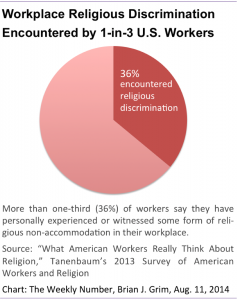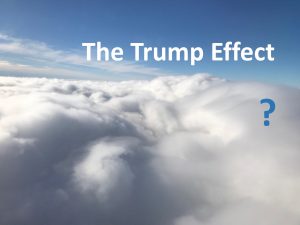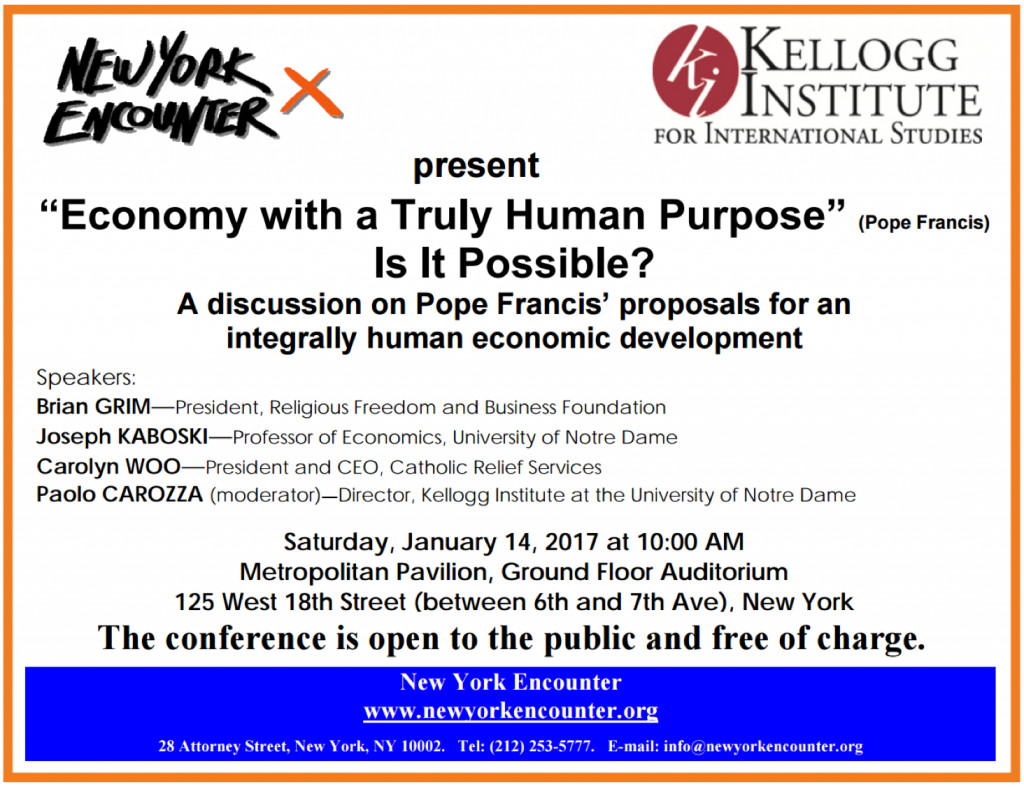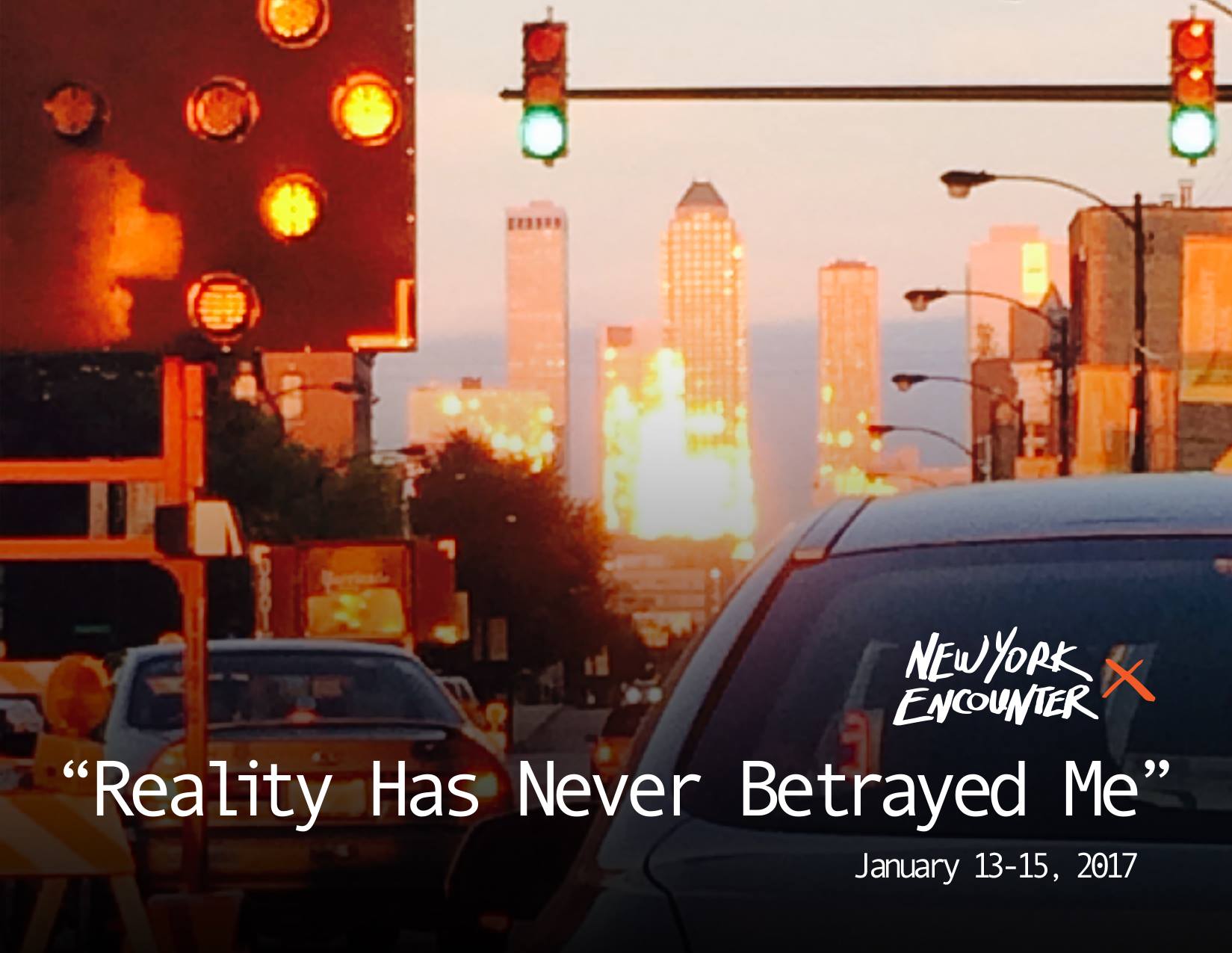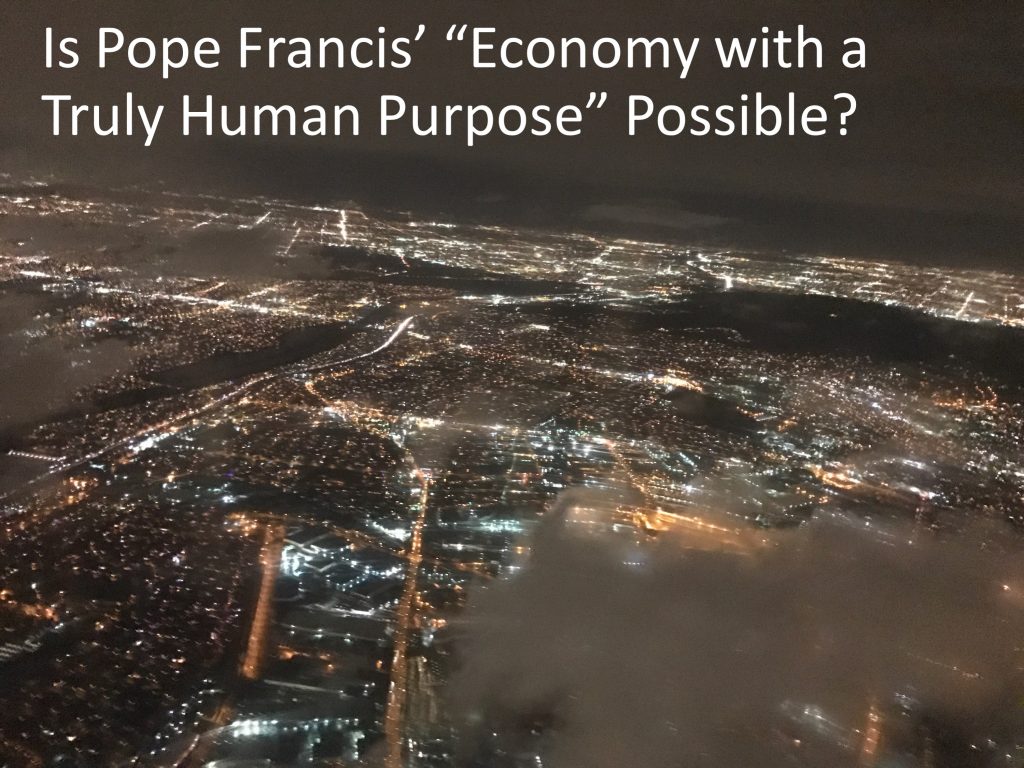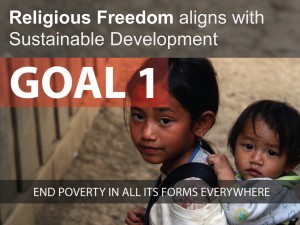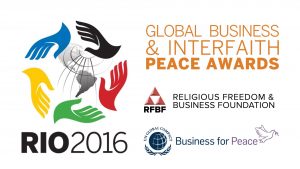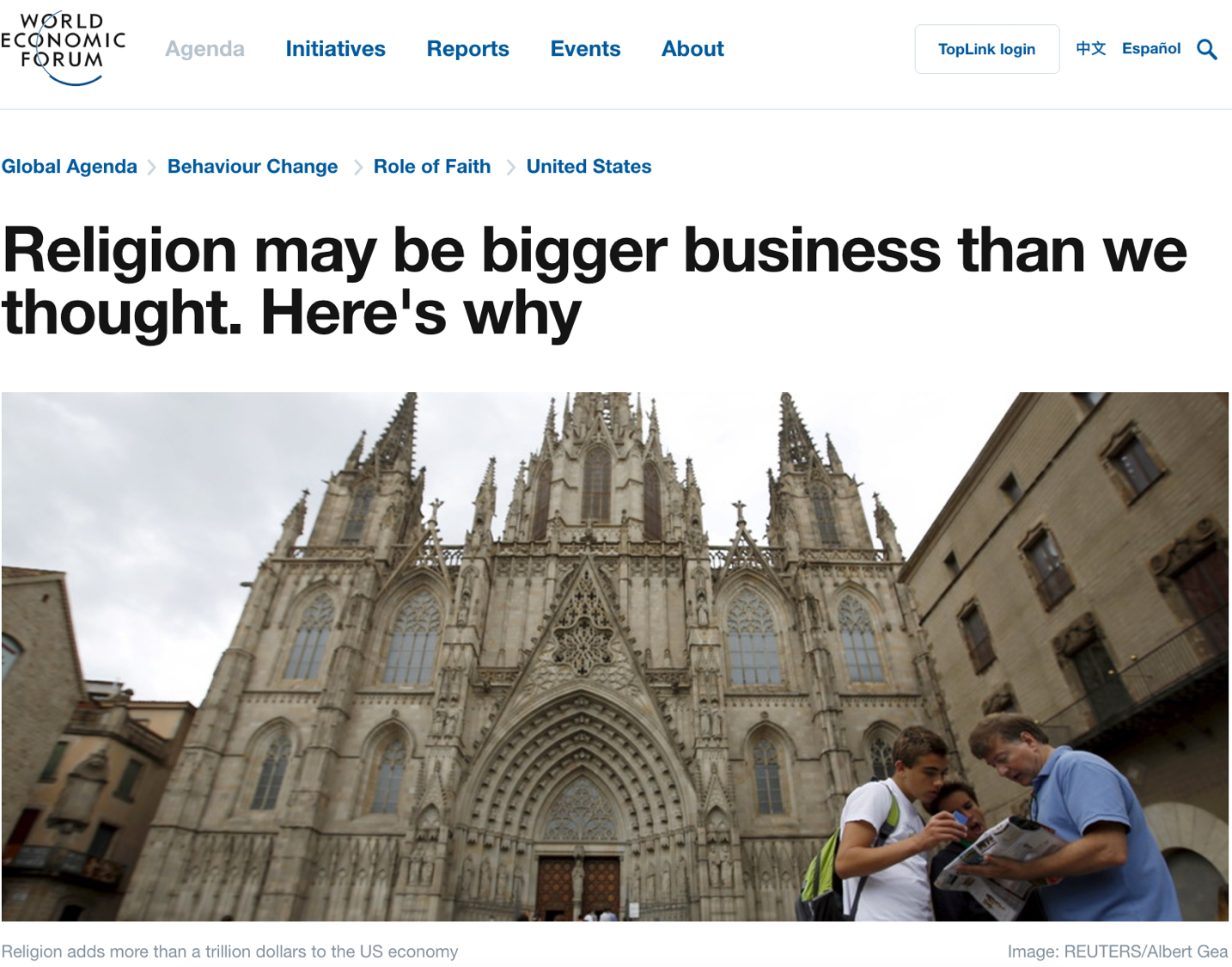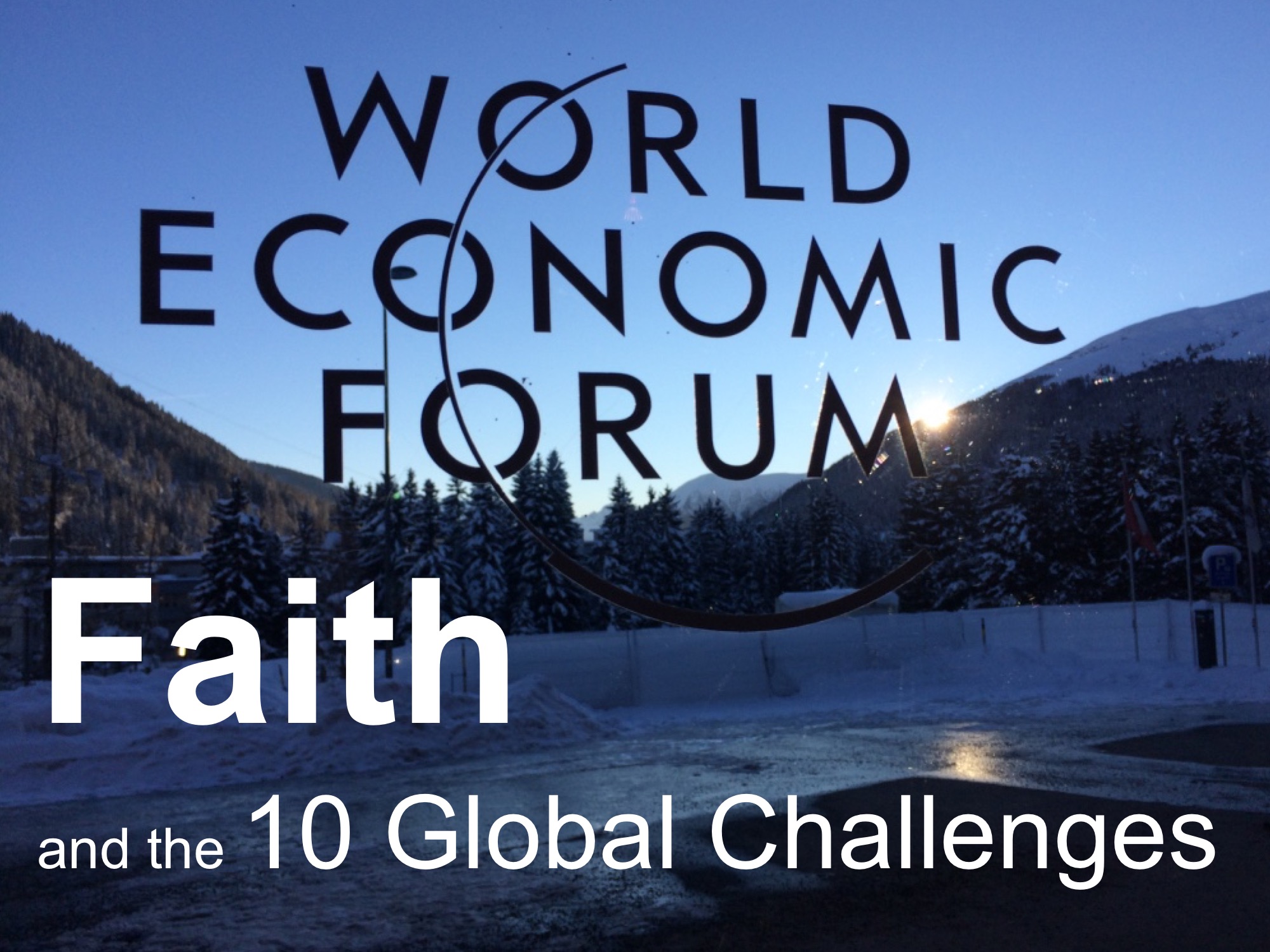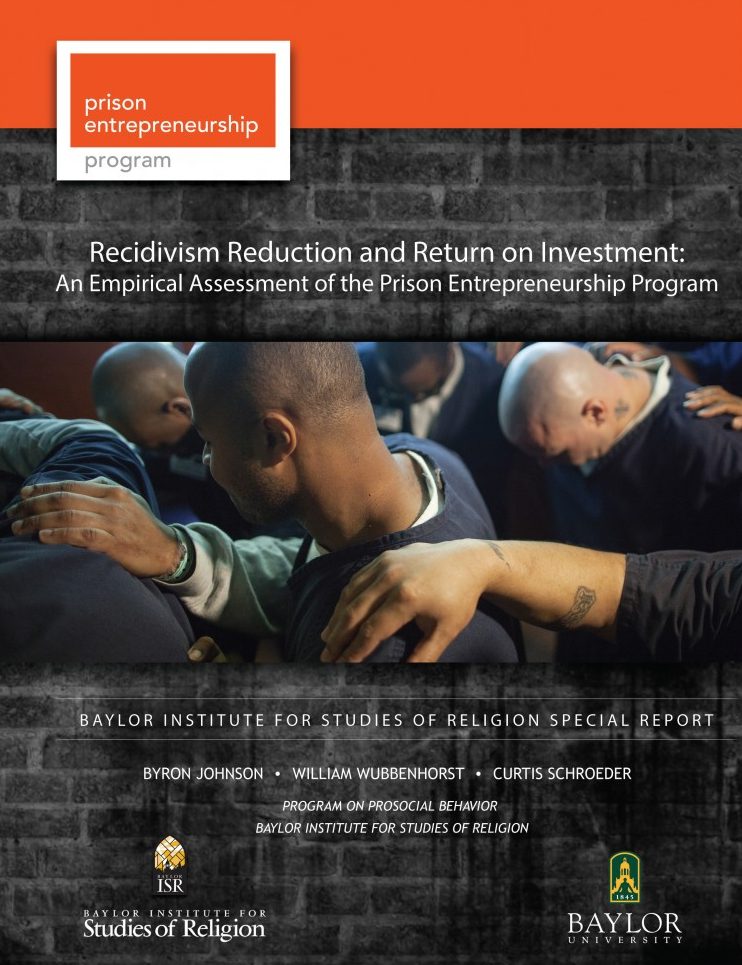- Brian J. Grim, Ph.D.
- President, Religious Freedom & Business Foundation (RFBF)
 Last week in Beirut I explored taking RFBF’s interfaith Empowerment-Plus social cohesion and enterprise initiative to Lebanon. With its rich multifaith/multiconfessional population and strategic location, Lebanon could be an excellent location for piloting an Arab language version of Empowerment-Plus.
Last week in Beirut I explored taking RFBF’s interfaith Empowerment-Plus social cohesion and enterprise initiative to Lebanon. With its rich multifaith/multiconfessional population and strategic location, Lebanon could be an excellent location for piloting an Arab language version of Empowerment-Plus.
SECTIONS:
- (1) Empowerment-Plus
- (2) In Beirut
- (3) Business Inspirations for Empowerment-Plus
Empowerment-Plus
Empowerment-Plus helps young adults from all faith backgrounds to channel their energies and capabilities toward building lives, families, careers, businesses and friendship networks with a lively faith in the Lord. Young adults collaborate on practical day-to-day issues including: leadership and life direction; finding better and more meaningful work; creating and building entrepreneurial businesses, better managing personal finances, and ultimately attaining economic self-reliance so that they can be a benefit and blessing to others.
RFBF aims to scale-up of Empowerment-Plus globally by working with coalitions of like-mined business, civil society and funding partners throughout the world. The initiative will increase the positive space for freedom of religion and belief through interfaith action and enterprises that promote social cohesion, sustainable growth and self-reliance.
Empowerment-Plus includes partnering with local faith communities to set up franchise-able enterprises ranging from business incubators in under-used religious buildings to “Pizza for Peace mobile cafés” inspired, flavoured, staffed and managed by refugees, immigrants and/or religious minorities in partnership with local citizens who are also in need of better employment and business skills.
 Empowerment-Plus is currently being piloted successfully in England at Manchester University’s Catholic Chaplaincy, and in collaboration with numerous partners including: the Jesuit community in Manchester, Caritas (Diocese of Salford), Manchester’s Nigerian Muslim Community (NASFAT), Chabad at Manchester Universities, Manchester Central Mosque, Manchester’s Young Single Adult Center of The Church of Jesus Christ of Latter-day Saints, St. Mary’s University, and Citizens-UK in Manchester.
Empowerment-Plus is currently being piloted successfully in England at Manchester University’s Catholic Chaplaincy, and in collaboration with numerous partners including: the Jesuit community in Manchester, Caritas (Diocese of Salford), Manchester’s Nigerian Muslim Community (NASFAT), Chabad at Manchester Universities, Manchester Central Mosque, Manchester’s Young Single Adult Center of The Church of Jesus Christ of Latter-day Saints, St. Mary’s University, and Citizens-UK in Manchester.
Our initiative in Manchester is ably led by Ms. Hinna Parvez from Pakistan, an RFBF research fellow.
In Beirut
Last week I had a series of meetings and discussions with local Lebanese foundations, academics and business leaders. A key advocate for interfaith understanding, religious freedom and peace in Lebanon is Dr. Fouad Makhzoumi, a leading industrialist in the country, region and world.
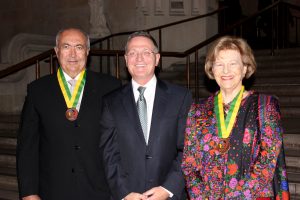 Dr. Makhzoumi (pictured with Brian Grim and fellow awardee Baroness Nicholson) is also a recipient of the Global Business & Interfaith Peace Prize award by RFBF in collaboration with the United Nations Global Compact with support from the United Nations Alliance of Civilizations. He received the award for his work in founding (in 1997) the Makhzoumi Foundation, motivated by his strong desire to help empower fellow citizens to achieve self-sufficient independence via improved career prospects, regardless of religion or creed. This was a significant step forward given that Lebanon was emerging from a 15-year civil war that fell along sectarian lines and left the country in a state of disrepair with a desperate need to rebuild and jumpstart its flailing economy and educational system.
Dr. Makhzoumi (pictured with Brian Grim and fellow awardee Baroness Nicholson) is also a recipient of the Global Business & Interfaith Peace Prize award by RFBF in collaboration with the United Nations Global Compact with support from the United Nations Alliance of Civilizations. He received the award for his work in founding (in 1997) the Makhzoumi Foundation, motivated by his strong desire to help empower fellow citizens to achieve self-sufficient independence via improved career prospects, regardless of religion or creed. This was a significant step forward given that Lebanon was emerging from a 15-year civil war that fell along sectarian lines and left the country in a state of disrepair with a desperate need to rebuild and jumpstart its flailing economy and educational system.
Indeed, Dr. Makhzoumi – a Sunni Muslim – powerfully lays out the case for interfaith understanding and religious freedom in his acceptance speech for the Global Business & Interfaith Peace Prize in a video already viewed by more than 75,000 (see newly added video with Arabic subtitles here).
 Fouad’s wife, Mrs. May Makhzoumi (pictured with me and Samer El Safah, Foundation General Manager), leads the work of the Makhzoumi Foundation in carrying out computer, language and vocational training at a modest fee to anyone wishing to take advantage of the opportunity. They also provide health care as well as microlending services for new business start-ups, and Dr. Makhzoumi just this past week launched a new centre for entrepreneurship at the Lebanese American University in Beirut.
Fouad’s wife, Mrs. May Makhzoumi (pictured with me and Samer El Safah, Foundation General Manager), leads the work of the Makhzoumi Foundation in carrying out computer, language and vocational training at a modest fee to anyone wishing to take advantage of the opportunity. They also provide health care as well as microlending services for new business start-ups, and Dr. Makhzoumi just this past week launched a new centre for entrepreneurship at the Lebanese American University in Beirut.
In my visit to the Foundation’s Beirut headquarters, I was particularly impressed with the generous care and attention the staff in each department given to the participants in the classes and recipients of the multifaceted services.
After touring the medical and dental clinics, followed by the beautician skills school and computer and jobs training classes, I found myself in a spiritual formation class for grandmothers. After I was introduced, the class broke into smiles and chatter (some in English), all wishing me to stay or at least come back soon. They all wanted to take a picture, shown below. But as custom dictates, photos are more serious business and, as the lone American in the pic, I was the only one smiling.
Smiles broke out again after the camera clicked. I found the grandmas not only engaging and encouraging but also a lot of fun. I plan to go back soon.
The Lebanese American University
The main purpose of the trip was to speak at the International Conference on Religious Freedom and the Reconstruction of Citizenship held at the Lebanese American University and organized by the Institute of Citizenship and Diversity Management at Lebanon’s Adyan Foundation with support from Missio and the Church of Sweden.
The Adyan Foundation, founded a decade ago by its current director Prof. Fadi Daou, builds solid networks of collaboration and solidarity across faith lines upon the belief that coexistence can be built or rebuilt in pluralistic and post-conflict societies when diversity is viewed as an added value for all. The Adyan Foundation brings together people from different communities, either during a spiritual event or around social solidarity and development projects, and helps them to discover their common values and build authentic and fruitf ul relations. The Adyan Foundation not only shares the lessons learned from the Lebanese context at home, but also through international initiatives.
ul relations. The Adyan Foundation not only shares the lessons learned from the Lebanese context at home, but also through international initiatives.
The International Conference on Religious Freedom and the Reconstruction of Citizenship is one such endeavor. Participants came from 14 countries across the Arab world, Europe, Africa and Pakistan. I had the honor of representing the United States. Others participating included the ambassadors of Great Britain and France, as well as leading scholars from Iraq, Egypt, Lebanon, Jordan, Tunisia and Bahrain.
Certainly, the Conference provided a practical opportunity for me to not only get positive feedback on the Empowerment-Plus approach from leading thinkers and policy makers, but also directly explore implementation.
For instance, young adults, a.k.a. Millennials, are a key focus of the Adyan Foundation. Their networks around Lebanon of youth committed to working together could become participants and volunteers in Empowerment-Plus training and entrepreneurship activities.
I’ll have a chance to follow up with Prof. Fadi Daou later this month at the 3rd Forum for Peace in Muslim Societies in Abu Dhabi, UAE from December 18-19, 2016. Fadi and I have both been supporting the Marrakesh Declaration on the Rights of Minorities in Muslim-Majority Lands promulgated by H.E Shaykh Abdallah Bin Bayyah, President of the Forum for Peace in Muslim Societies. The following is a video presentation by Shaykh Bin Bayyah on the Declaration that he prepared for me to show at this past year’s Rimini Meeting in Italy.
Business Inspirations of Empowerment-Plus
Empowerment-Plus draws its inspiration from business leaders around the world engaged in similar enterprises and initiatives. For instance, as described above, the Makhzoumi Foundation founded by Lebanese industrialist Fouad Makhzoumi, CEO of Future Pipe Industries Group Ltd., engages in similar projects and serves as a successful model informing the development Empowerment-Plus.
Fellow Lebanese businessman Abdo Ibrahim El Tassi only found his business success as an immigrant to Canada, where he now runs a successful manufacturing company providing jobs for many in Manitoba. Seeing the struggle that many immigrants face when relocating to Canada, El Tassi works to provide training and development opportunities for newcomers. He has provided $1.7 million to immigrants in interest-free loans for business startups, mortgages, and university tuition. Empowerment-Plus similarly engages successful business people and companies to set microloans to help people on the path toward self-reliance.
The unique contributions of Empowerment-Plus, however, include intentionally including interfaith components in all its initiatives that help participants ground their decisions and actions in spiritual values and virtues common across all faith traditions. Moreover, the Empowerment-Plus business incubator and “Pizza for Peace mobile cafés” add revenue-generation allowing Empowerment-Plus centres to be largely self-sustaining. And perhaps most importantly, Empowerment-Plus is primarily carried out through volunteer facilitators and mentors who become part of interfaith communities committed to building and expanding the human networks essential for impact and success.
A diverse range of business men and women from around the world serve also as our model and mentors. These leaders were recently recognized for using their businesses to bridge cultural and religious divides at the inaugural Global Business & Interfaith Peace Awards in a ceremony on Tuesday, 6 September 2016, a day before the Opening Ceremony of the Paralympic Games in Rio de Janeiro, Brazil. These leaders include Christians, Jews, Muslims and the religiously unaffiliated from all continents, showing that the values of interfaith understanding, religious freedom and peace have universal appeal and are vital to a fertile business climate regardless of location.
Still, in many countries, social and political tensions have spurred violence and unrest along religious and cultural lines. Each group within this struggle has a different narrative and understanding of what has led to current culture and conflict. Aziz Abu Sarah and Scott Cooper, co-CEOs and Founders of MEJDI Tours, have offered an invaluable perspective for Empowerment-Plus. They recognize that allowing people tell their story is a first step in fostering peace and cultural understanding. In Israel, for example, their “Dual Narrative” approach allows Israeli and Palestinian tour guides to offer varying perspectives on culture, religion, and politics at each location. The example of MEDJI Tours points to one of the fundamental principles of Empowerment-Plus: always include multiple faith groups in each enterprise or activity. Empowerment-Plus is not just another jobs programme. It is an intentional initiative brining people from vastly different backgrounds together for a common purpose.
Other leaders inspiring the Empowerment-Plus include Indonesian businessman Y.W. Junardy, who uses his business acumen to solve social problems, specifically facilitating thousands of marriages for poor Indonesians of all faiths, providing their families with the legal status necessary to advance in Indonesian society. Like Junardy, Empowerment-Plus takes an action rather than just dialogue approach to addressing the underlying causes of social tensions.
Don Larson, founder and CEO of Sunshine Nut Company in Mozambique, works across faith and cultural lines to revive the country’s cashew business. The secret of his success in what he calls a “reverse tithe” – giving 90% of the profits back to investment in Mozambique and developing a fair-trade supply chain rather than expatriating the profits. Like Don, Empowerment-Plus exists for the benefit of the people it serves, not the benefit of Empowerment-Plus itself.
Brittany Underwood, founder and president of AKOLA in Texas, U.S., and Uganda, promotes gender equality and religious freedom by employing Ugandan women to create fashion jewelry. Underwood also created a Dallas-based organization that employs women who have survived human trafficking. Like Brittany, Empowerment-Plus believes that enterprise is more sustainable than charity.
Jonathan Berezovsky, CEO of Migraflix in Brazil, helps immigrants and refugees integrate into Brazil through facilitating cultural exchanges between them and the local community. Migraflix also empowers immigrants and refugees by setting them up as instructors of classes to share skills and knowledge they have that is of interest to their new homelands. Like Migraflix, Empowerment-Plus sees newcomers as assets with new and needed skills that can contribute significantly to the local economies.
Bruce McEver, co-founder and president of Berkshire Capital Securities LLC in New York and London, set up a foundation which works to cultivate inter-religious understanding through the promotion of religious literacy especially among business leaders. Like Bruce, Empowerment-Plus reaches out to top business leaders and companies to help them understand how they can advance interfaith understanding and peace in their own workplaces and through engagement with Empowerment-Plus.
Emma Nicholson, Baroness of Winterbourne, executive chairman of the Iraq Britain Business council and founder and chairman of AMAR Foundation in the U.K. and Iraq, works to build business, technology, trade and investment in Iraq, with a special focus on women of religious minorities, such as Yazidis. Like Baroness Nicholson, Empowerment-Plus sees the importance of having an intentional focus on women who often are the most badly affected in conflict and repressive environments.
Similar inspiration comes from Kathy Ireland, founder of Kathy Ireland Worldwide. Kathy supports initiatives to empower leaders in advancing freedom in the face of religious oppression and has raised the call to defend Yazidi women in Iraq. Like Kathy, Empowerment-Plus pays particular attention to people who are oppressed because of their faith or belief.
Tayyibah Taylor (1952-2014) is a particularly good example of looking beyond stereotypes. Ms. Taylor was a tireless international voice for Muslim women everywhere. Through her Asisah magazine and advocacy efforts, she helped people of all faiths to broaden their perceptions of the lives and potential of Muslim women as she worked to reveal their true accomplishments and talent. Similarly, Empowerment-Plus aims to help people see beyond stereotypes of “the other” and focus on how diversity can bring greater economic success to communities.
Frank Fredericks, Founder and CEO of Mean Communications, has created whole campaigns to combat stigmatization of “otherness.” He led his organization in a coalition with the United Nations Alliance of Civilizations, UNESCO, and other partners to produce a coordinated social media effort to spread awareness for the worldwide campaign “Do One Thing for Diversity and Inclusion.” In a more one-on-one level, Empowerment-Plus appeals to successful people in communities to volunteer as mentors – sharing what they’ve learned and been good at with others who are hoping to follow a similar path to success.
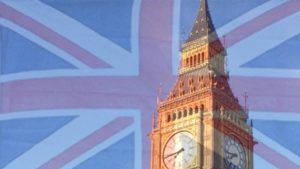 Dear Friends and Colleagues,
Dear Friends and Colleagues,



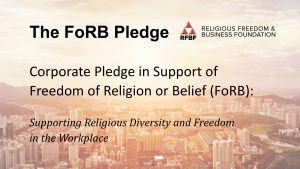

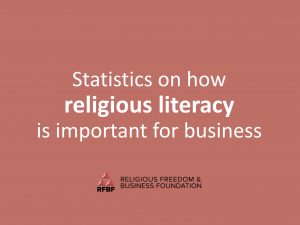 by
by 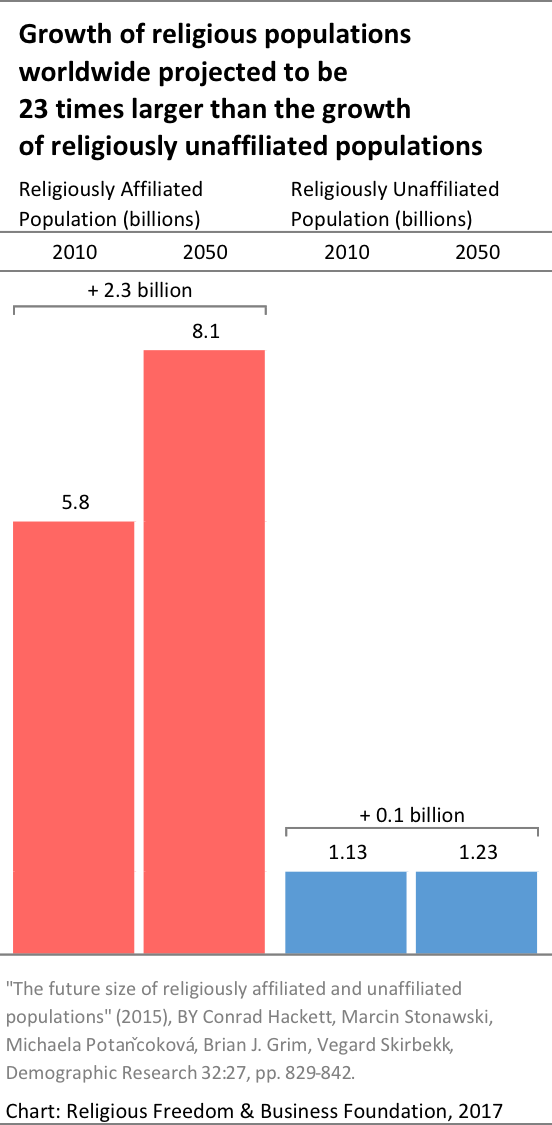
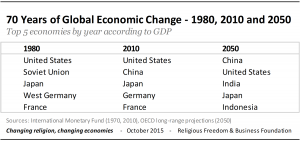 to a 2015 study by the Religious Freedom & Business Foundation,
to a 2015 study by the Religious Freedom & Business Foundation, 